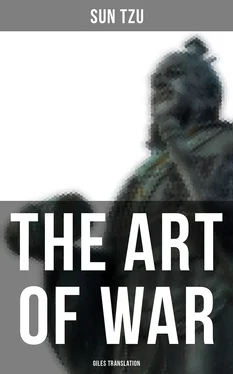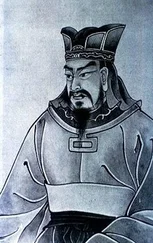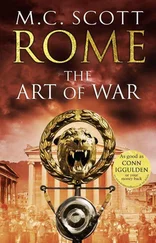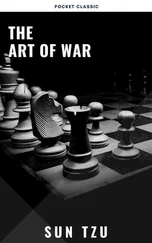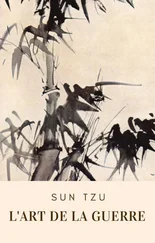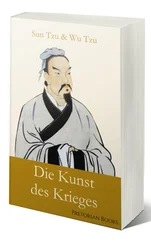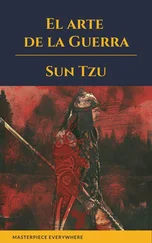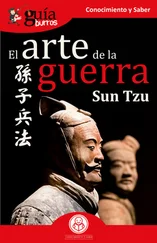11. On the other hand, the proximity of an army causes prices to go up; and high prices cause the people's substance to be drained away.
12. When their substance is drained away, the peasantry will be afflicted by heavy exactions.
13,14. With this loss of substance and exhaustion of strength, the homes of the people will be stripped bare, and three-tenths of their income will be dissipated; while government expenses for broken chariots, worn-out horses, breast-plates and helmets, bows and arrows, spears and shields, protective mantles, draught-oxen and heavy wagons, will amount to four-tenths of its total revenue.
15. Hence a wise general makes a point of foraging on the enemy. One cartload of the enemy's provisions is equivalent to twenty of one's own, and likewise a single picul of his provender is equivalent to twenty from one's own store.
16. Now in order to kill the enemy, our men must be roused to anger; that there may be advantage from defeating the enemy, they must have their rewards.
17. Therefore in chariot fighting, when ten or more chariots have been taken, those should be rewarded who took the first. Our own flags should be substituted for those of the enemy, and the chariots mingled and used in conjunction with ours. The captured soldiers should be kindly treated and kept.
18. This is called, using the conquered foe to augment one's own strength.
19. In war, then, let your great object be victory, not lengthy campaigns.
20. Thus it may be known that the leader of armies is the arbiter of the people's fate, the man on whom it depends whether the nation shall be in peace or in peril.
TOC
1. Sun Tzu said: In the practical art of war, the best thing of all is to take the enemy's country whole and intact; to shatter and destroy it is not so good. So, too, it is better to recapture an army entire than to destroy it, to capture a regiment, a detachment or a company entire than to destroy them.
2. Hence to fight and conquer in all your battles is not supreme excellence; supreme excellence consists in breaking the enemy's resistance without fighting.
3. Thus the highest form of generalship is to balk the enemy's plans; the next best is to prevent the junction of the enemy's forces; the next in order is to attack the enemy's army in the field; and the worst policy of all is to besiege walled cities.
4. The rule is, not to besiege walled cities if it can possibly be avoided. The preparation of mantlets, movable shelters, and various implements of war, will take up three whole months; and the piling up of mounds over against the walls will take three months more.
5. The general, unable to control his irritation, will launch his men to the assault like swarming ants, with the result that one-third of his men are slain, while the town still remains untaken. Such are the disastrous effects of a siege.
6. Therefore the skillful leader subdues the enemy's troops without any fighting; he captures their cities without laying siege to them; he overthrows their kingdom without lengthy operations in the field.
7. With his forces intact he will dispute the mastery of the Empire, and thus, without losing a man, his triumph will be complete. This is the method of attacking by stratagem.
8. It is the rule in war, if our forces are ten to the enemy's one, to surround him; if five to one, to attack him; if twice as numerous, to divide our army into two.
9. If equally matched, we can offer battle; if slightly inferior in numbers, we can avoid the enemy; if quite unequal in every way, we can flee from him.
10. Hence, though an obstinate fight may be made by a small force, in the end it must be captured by the larger force.
11. Now the general is the bulwark of the State; if the bulwark is complete at all points; the State will be strong; if the bulwark is defective, the State will be weak.
12. There are three ways in which a ruler can bring misfortune upon his army:--
13. (1) By commanding the army to advance or to retreat, being ignorant of the fact that it cannot obey. This is called hobbling the army.
14. (2) By attempting to govern an army in the same way as he administers a kingdom, being ignorant of the conditions which obtain in an army. This causes restlessness in the soldier's minds.
15. (3) By employing the officers of his army without discrimination, through ignorance of the military principle of adaptation to circumstances. This shakes the confidence of the soldiers.
16. But when the army is restless and distrustful, trouble is sure to come from the other feudal princes. This is simply bringing anarchy into the army, and flinging victory away.
17. Thus we may know that there are five essentials for victory:
(1) He will win who knows when to fight and when not to fight.
(2) He will win who knows how to handle both superior and inferior forces.
(3) He will win whose army is animated by the same spirit throughout all its ranks.
(4) He will win who, prepared himself, waits to take the enemy unprepared.
(5) He will win who has military capacity and is not interfered with by the sovereign.
18. Hence the saying: If you know the enemy and know yourself, you need not fear the result of a hundred battles. If you know yourself but not the enemy, for every victory gained you will also suffer a defeat. If you know neither the enemy nor yourself, you will succumb in every battle.
IV. TACTICAL DISPOSITIONS
TOC
1. Sun Tzu said: The good fighters of old first put themselves beyond the possibility of defeat, and then waited for an opportunity of defeating the enemy.
2. To secure ourselves against defeat lies in our own hands, but the opportunity of defeating the enemy is provided by the enemy himself.
3. Thus the good fighter is able to secure himself against defeat, but cannot make certain of defeating the enemy.
4. Hence the saying: One may know how to conquer without being able to do it.
5. Security against defeat implies defensive tactics; ability to defeat the enemy means taking the offensive.
6. Standing on the defensive indicates insufficient strength; attacking, a superabundance of strength.
7. The general who is skilled in defense hides in the most secret recesses of the earth; he who is skilled in attack flashes forth from the topmost heights of heaven. Thus on the one hand we have ability to protect ourselves; on the other, a victory that is complete.
8. To see victory only when it is within the ken of the common herd is not the acme of excellence.
9. Neither is it the acme of excellence if you fight and conquer and the whole Empire says, "Well done!"
10. To lift an autumn hair is no sign of great strength; to see the sun and moon is no sign of sharp sight; to hear the noise of thunder is no sign of a quick ear.
11. What the ancients called a clever fighter is one who not only wins, but excels in winning with ease.
12. Hence his victories bring him neither reputation for wisdom nor credit for courage.
13. He wins his battles by making no mistakes. Making no mistakes is what establishes the certainty of victory, for it means conquering an enemy that is already defeated.
14. Hence the skillful fighter puts himself into a position which makes defeat impossible, and does not miss the moment for defeating the enemy.
15. Thus it is that in war the victorious strategist only seeks battle after the victory has been won, whereas he who is destined to defeat first fights and afterwards looks for victory.
16. The consummate leader cultivates the moral law, and strictly adheres to method and discipline; thus it is in his power to control success.
17. In respect of military method, we have, firstly, Measurement; secondly, Estimation of quantity; thirdly, Calculation; fourthly, Balancing of chances; fifthly, Victory.
Читать дальше
